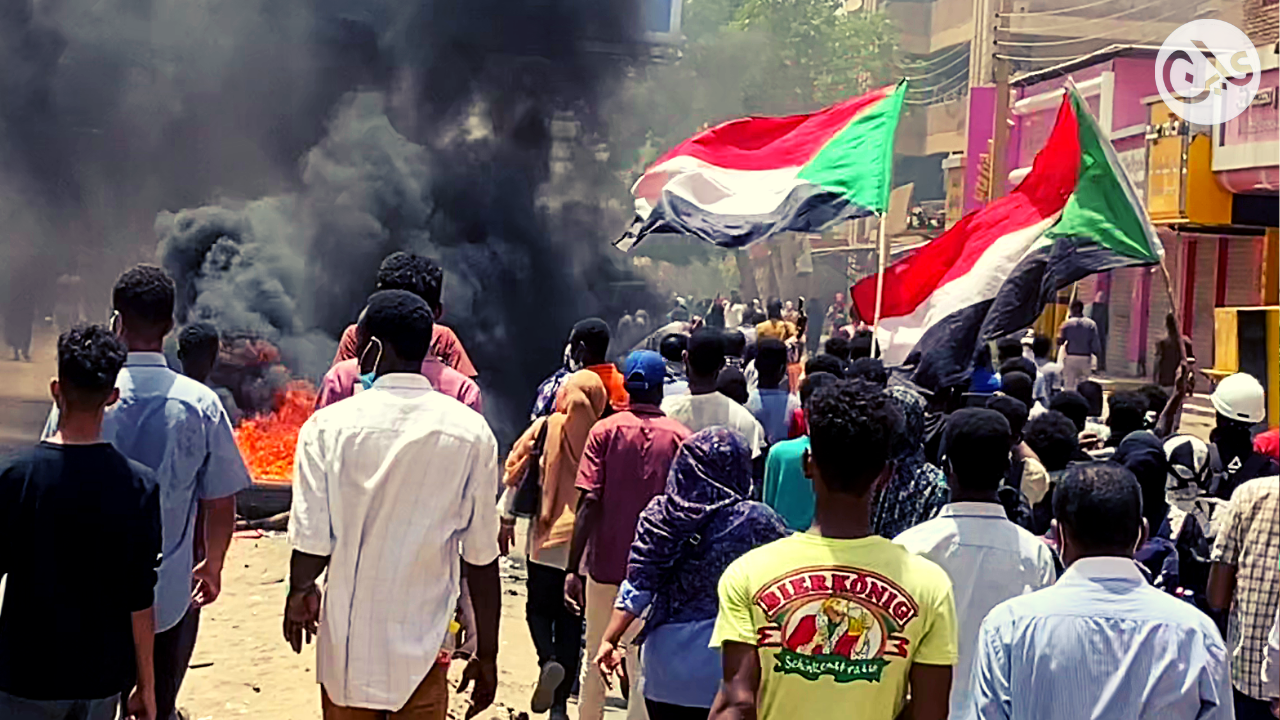Mass anti-coup protests across Sudan
1 July 2022
Eyewitnesses believe protests against the coup in Khartoum State, Sudan, may have reached over a million people yesterday in one of the largest demonstrations to take place since the revolution in December 2019.
Protests continue today after security forces met the pro-democracy demonstrators with brutal force, killing nine people.
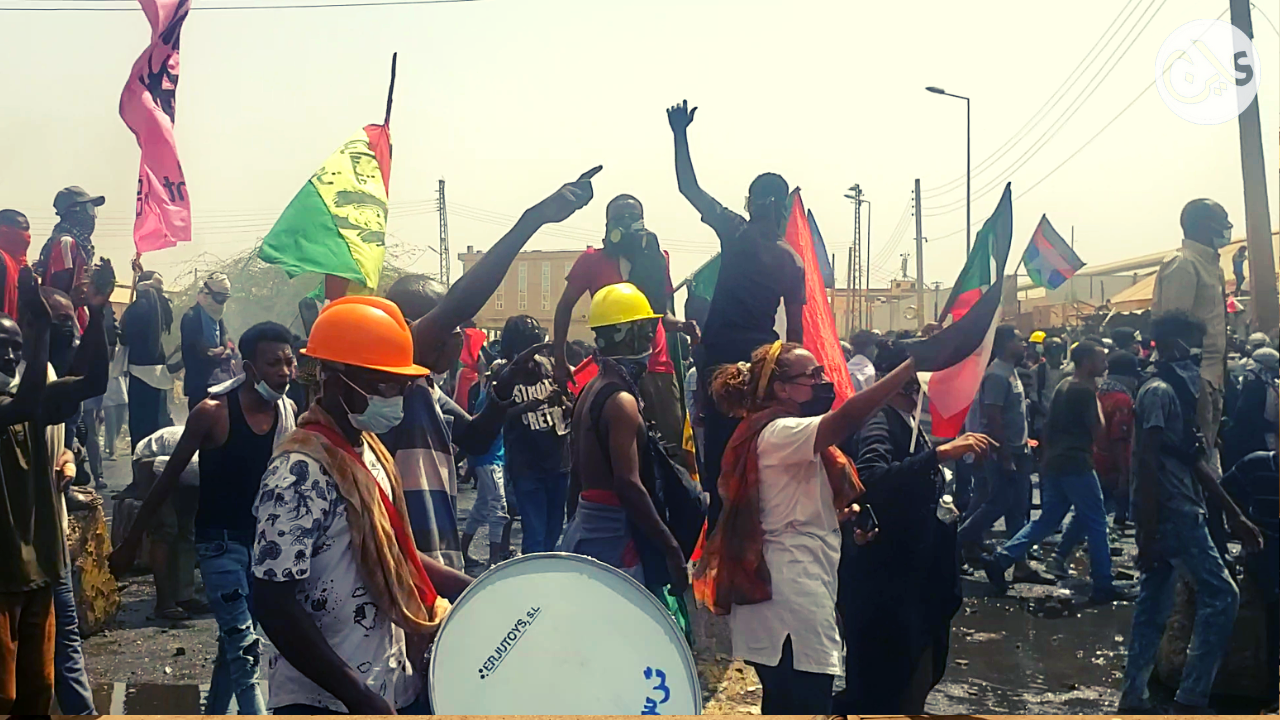
The mass protests in the capital and other cities across the country marked the third anniversary of the huge demonstrations on 30 June 2019 that toppled former president Omar al-Bashir and led to a power-sharing arrangement between civilians and the military.
At least nine protestors were killed by security forces, the Central Doctor’s Committee reported, with countless others wounded. According to eyewitnesses and medical contacts, security forces, primarily the police, used live bullets to suppress the protests. Security forces killed six in Khartoum’s sister city, Omdurman, one in Bahri, Khartoum North, and two in Khartoum city. By Thursday evening, protestors in Bahri and Khartoum said they were starting sit-ins against these killings, one of the highest single-day tolls to date.
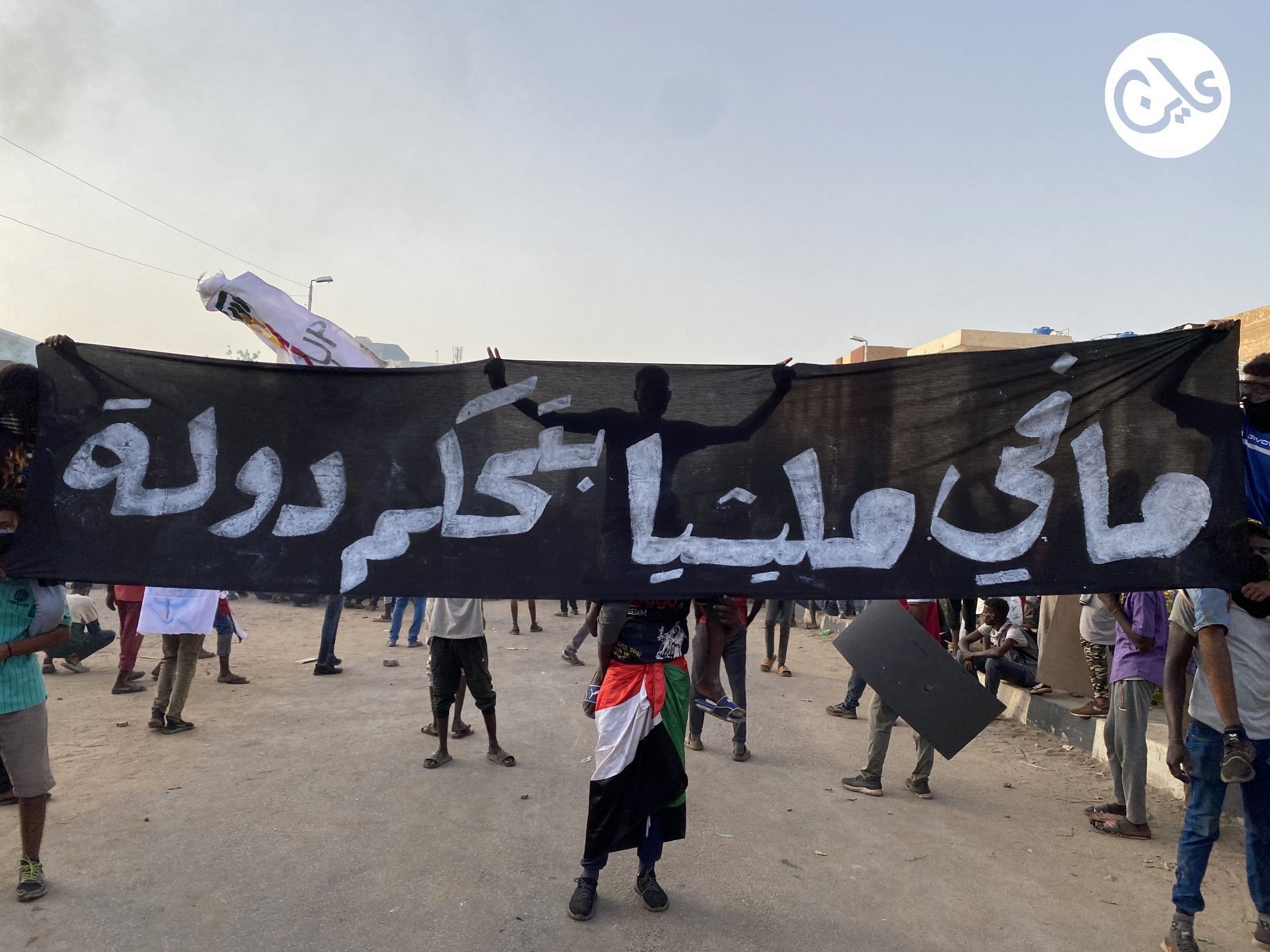
In one case, a video released on social media shows how police repeatedly shot a young protestor, Ali Zakaria, on 60th Street in the Riyadh neighbourhood of Khartoum. “The moment of the assassination of Ali Zakaria is in front of your eyes –-this view is scary and horrible,” writes one eyewitness, Mamoun Giha, “it makes you lose the will to continue.”
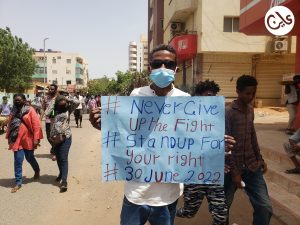
In a pre-emptive move, authorities closed the bridges linking the three cities of the capital to prevent protestors from reaching the presidential palace.
Protestors were particularly targeted near the parliamentary buildings in Omdurman, eyewitnesses told Ayin, as they attempted to cross Nile Bridge to join the main demonstrations taking place in Khartoum. According to one eyewitness, snipers on rooftops near the bridge targeted protestors using live bullets as they attempted to cross into Khartoum. Despite security forces using live bullets and tear gas, hundreds managed to cross the bridge, says protestor Muammar Ahmed, and joined a protest in Khartoum near Al-Jawdah Hospital.
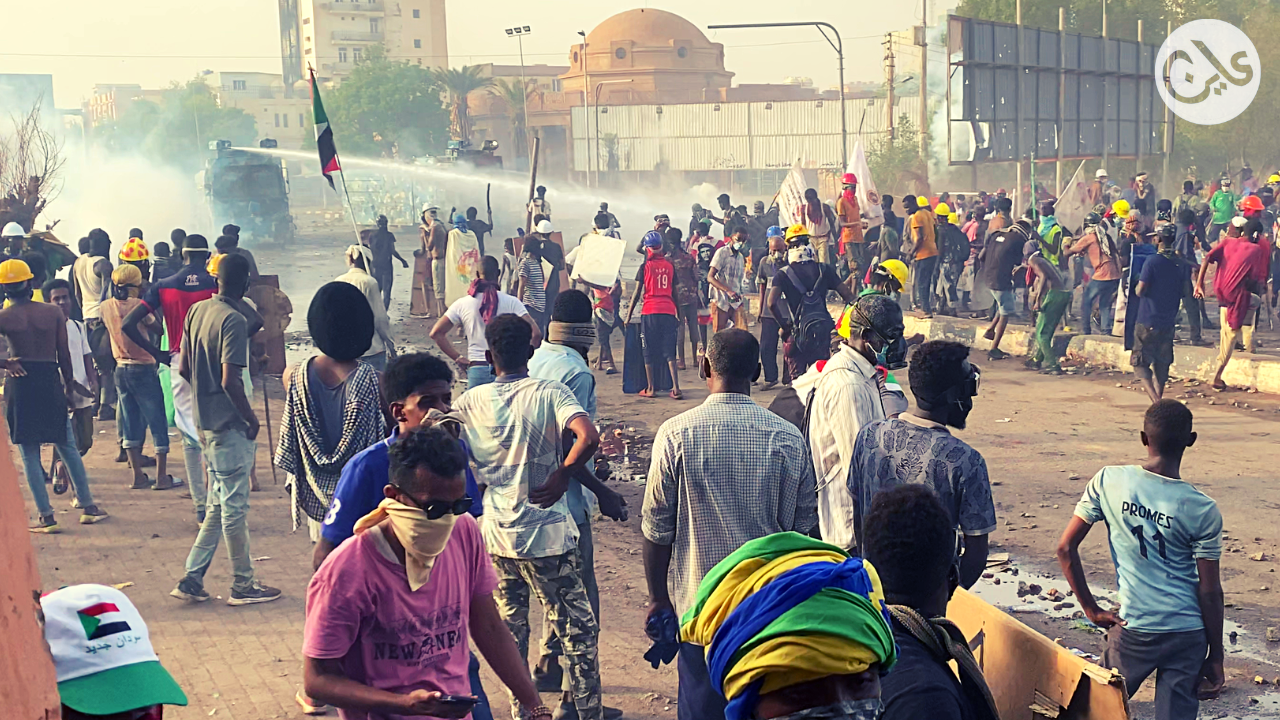
Within the capital Khartoum, large crowds walked long distances to reach Al-Qasr Street, a street that leads to the city centre, near the presidential palace. Security forces were forced to withdraw from the main street as masses of people advanced toward Al-Qasr Street. “They could not stop us, even with all the tear gas,” said protestor Sadiq Ali. “But many were injured along the way.” Medical sources say as many as 200 protestors were injured in yesterday’s demonstrations. While treating patients in extremely challenging conditions, the Sudanese Doctors’ Union stated that security forces targeted medical facilities, including firing tear gas into one hospital and preventing an ambulance from accessing another. The union warned military leader Lt.-Gen. Abdelfattah al-Burhan that violating health facilities will lead to a comprehensive strike by all medical staff.
The cities of Nyala, Wad Medani, El Fasher, Port Sudan and El Daein also witnessed demonstrations against the coup. In Nyala, Sudan’s second-largest city, thousands of civilians came out in huge processions to gather at the “Cinema Square” intersection within the city centre before proceeding to the state’s legislative council.
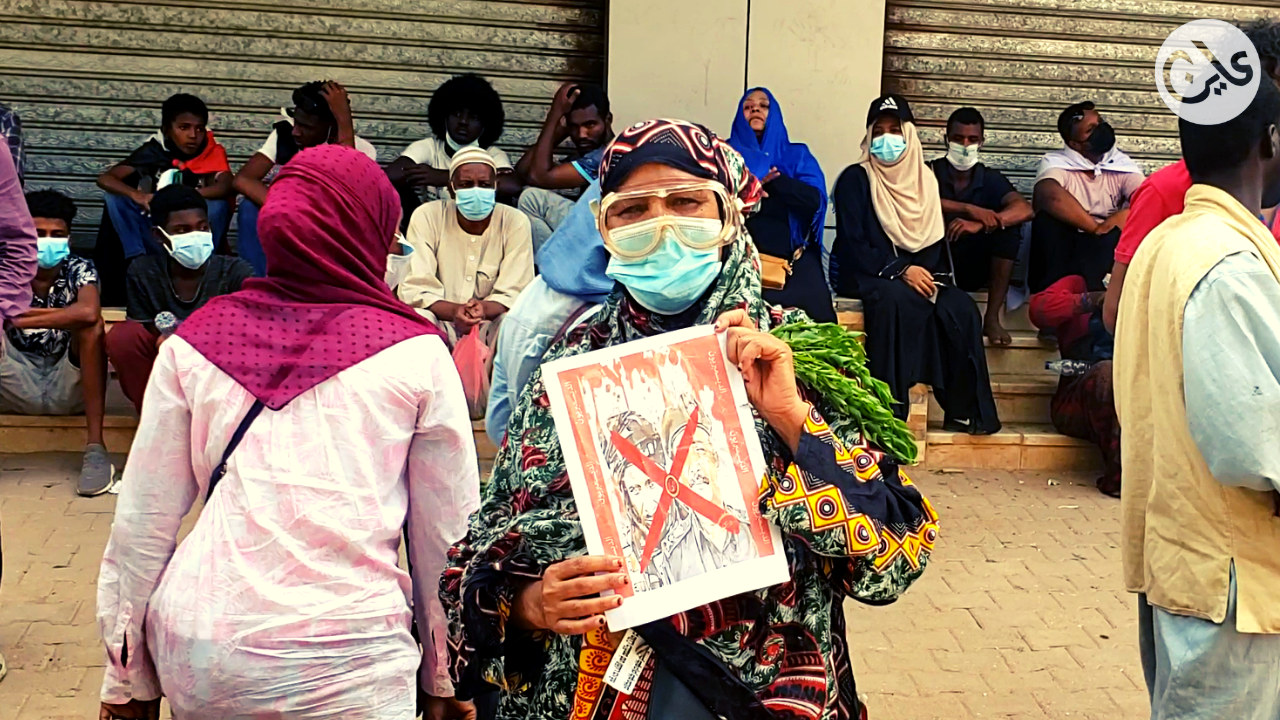
As in the past, all these events took place in a total news blackout. To silence coverage of the protest, the military junta shuttered the Internet at 8 am on Thursday with connectivity returning briefly yesterday evening before being fully restored today. According to the global Internet monitoring organisation, NetBlocks, Sudanese telecommunication companies have increasingly fallen under the influence or control of the military following the 2021 coup.
Despite the main protest being over, hundreds of Sudanese continue to hold a sit-in at al-Diyum, the main protest site south of downtown Khartoum. Demonstrators say they will remain at the site for as long as possible, protesting against the deadly force used by security forces against them.


